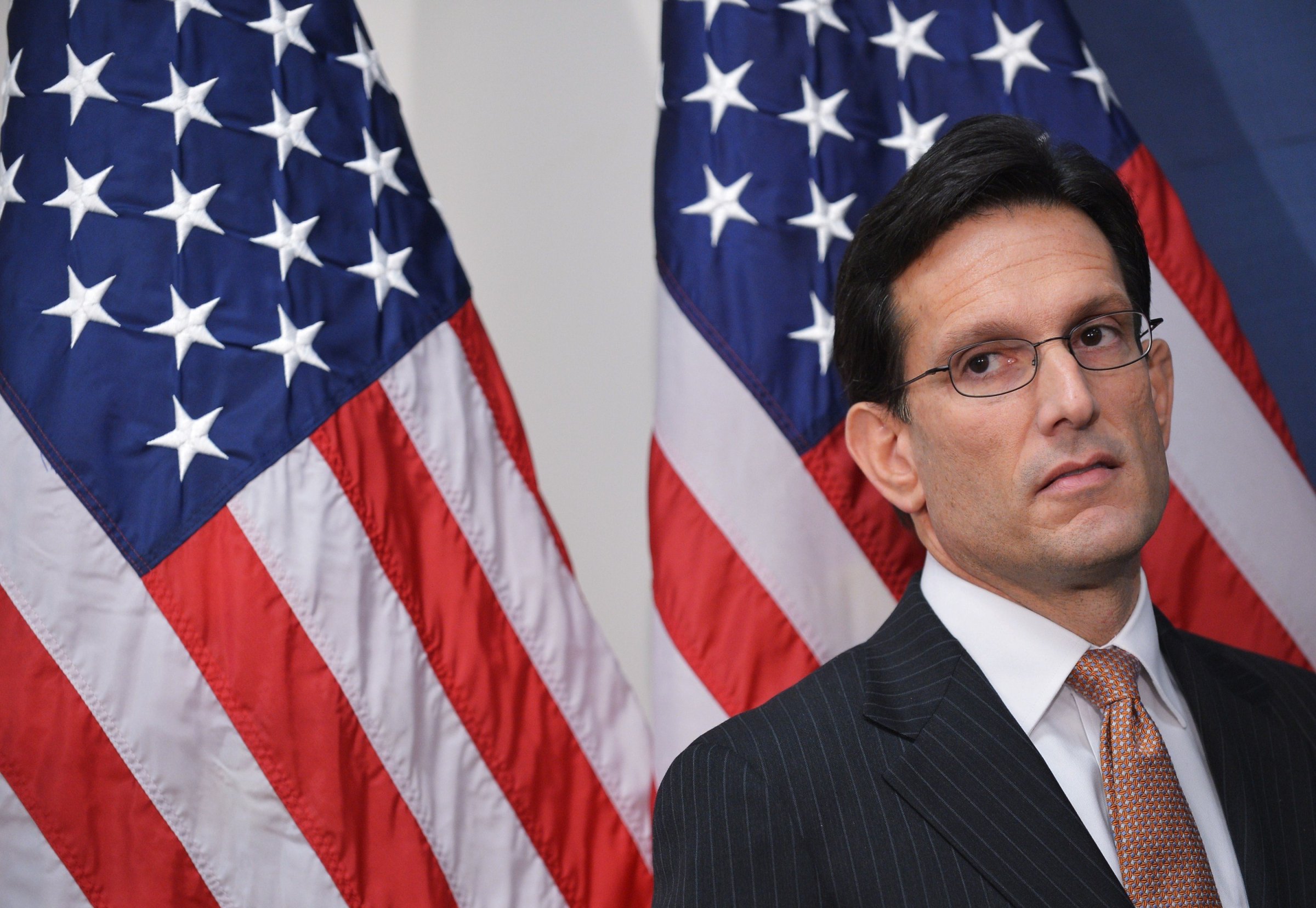
When Eric Cantor went down in flames Tuesday night, he took with him the hopes and dreams of a big chunk of the corporate lobby on K Street—along with a hefty wad of their cash.
Lobbying firms representing corporations, Wall Street, and industry trade associations have spent years pouring money into Cantor’s campaigns, hiring his former staffers, and otherwise investing in access to the former House Majority Leader, who was, until somewhere around dinner time on Tuesday, widely considered to be not only a shoe-in for reelection but also the next-in-line for Speaker of the House.
So far this election cycle, Cantor had raised more than $1.2 million from the financial services industry alone, according to the Center for Responsive Politics. His ability to extract cash from Wall Street was surpassed by only four other lawmakers, including Speaker of the House John Boehner (R-OH) and Senate Minority Leader Mitch McConnell (R-KY).
Cantor also accepted support this cycle—mainly in check-form—from nearly 400 PACs representing corporations and trade associations from every sector of the economy, from Oracle and Blue Cross Blue Shield to Verizon. In addition to the Wall Street banks, the list also includes the U.S. Chamber of Commerce and a healthy portion of the Fortune 500 list.
Cantor’s unexpected departure upsets the power dynamic on K Street, where recent hires, whose rising stock was linked to their connections to the presumed Speaker-to-be, have lost their ace in the hole. Cantor’s longtime senior counselor and former chief of staff Kyle Nevins and Cantor’s former “Young Gun” colleague on the National Republican Congressional Committee Jeff Burton, among many others, are now both without their most powerful connection on the Hill.
Wall Street will also feel the loss. Cantor, who proved himself a valiant defender of the banks since his first committee assignment on the Financial Services Committee, has often sided with the industry on key issues. In 2007, he refused to support a tax overhaul that would have increased tax rates for private-equity managers. In the wake of the financial crisis, he was an unflagging supporter of bailouts and other measures to under gird the biggest banks, including Goldman Sachs, where his wife used to work and which has been one of his most loyal donors. So far this election cycle, the investment bank’s PAC and its employees contributed $125,000 to Cantor’s campaign.
In 2012, Cantor went to bat over a provision in the Stock Act that would have required financial institutions to disclose who feeds them information about policy changes on the Hill. As a result of Cantor’s efforts, the identities of these so-called political intelligence purveyors remain secret—a point that Brat was not shy to point out on the campaign trail this spring.
While Cantor himself has not announced his next career move, one likely option is—what else?—a plum spot on K Street. On Wednesday, when a Politico reporter asked the head of a big lobbying firm if the firm might hire Cantor, the executive responded: “We’re always looking for talent.”
More Must-Reads from TIME
- Donald Trump Is TIME's 2024 Person of the Year
- Why We Chose Trump as Person of the Year
- Is Intermittent Fasting Good or Bad for You?
- The 100 Must-Read Books of 2024
- The 20 Best Christmas TV Episodes
- Column: If Optimism Feels Ridiculous Now, Try Hope
- The Future of Climate Action Is Trade Policy
- Merle Bombardieri Is Helping People Make the Baby Decision
Write to Haley Sweetland Edwards at haley.edwards@time.com